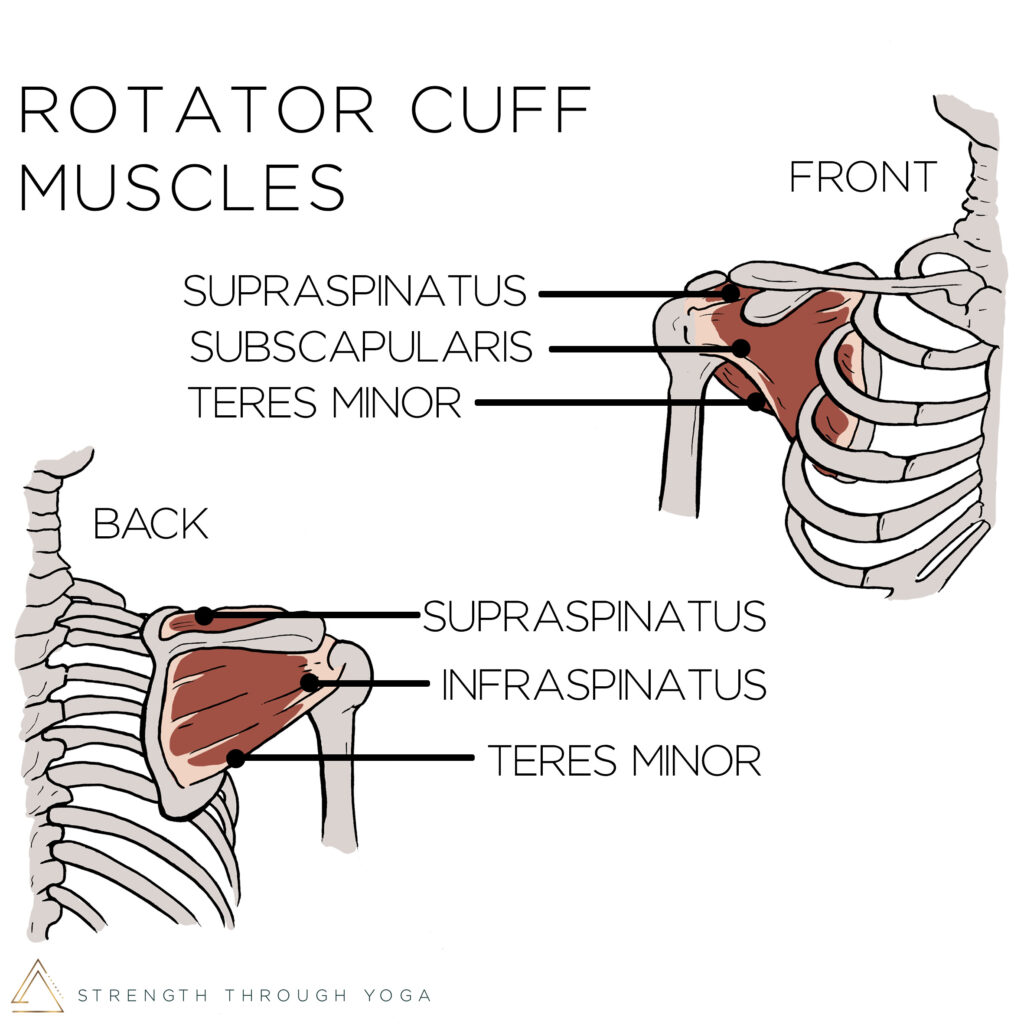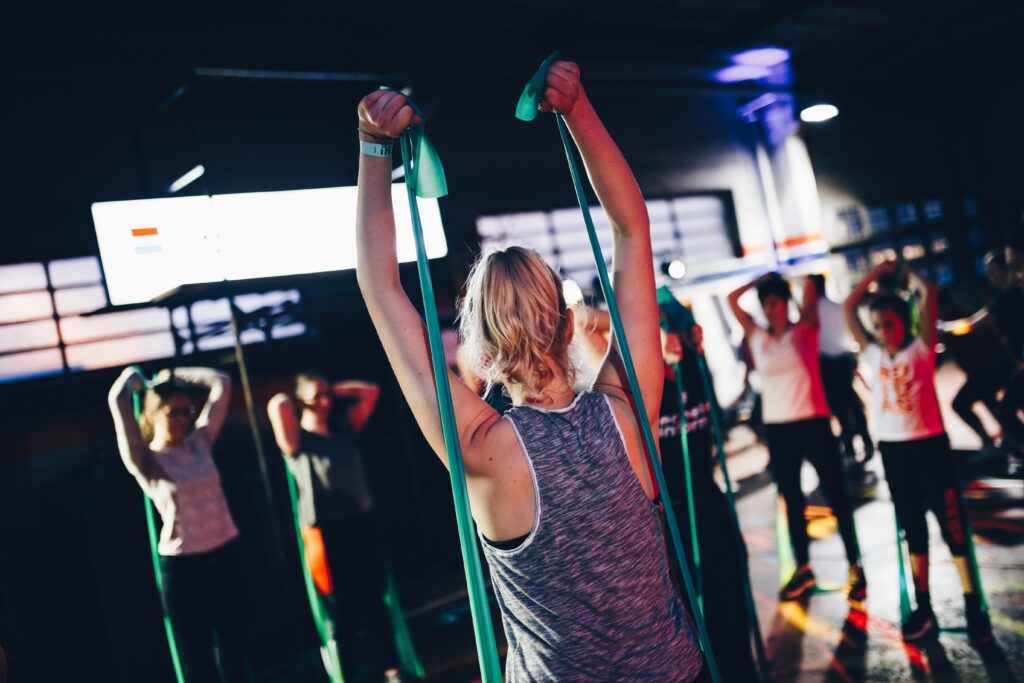Build Strong Healthy Shoulders With These Simple Physio Tips
Give your shoulders some TLC with these simple but hugely effective tips I give to my physiotherapy clients. Over the past 14 years these tips are great for not only treating shoulder pain, but also for preventing issues. First, let’s bust some common myths about shoulder pain.
1. Winging scapula causes shoulder pain.
Not true! Some people have very “winged” scapula (shoulder blades) but no issues at all, and others who have “perfect” looking scapula are riddled with pain. So why all the fuss about them? In theory, based on the biomechanics of a shoulder joint, a winged scapula means that your shoulder joint doesn’t move as it should and so becomes aggravated causing pain. However, pain is not that simple. The biopsychosocial model is a much more appropriate model of thinking about our health and well-being.

This means that whilst biomechanics and anatomy (the bio- part) are important, our emotions, beliefs and life situations (the -psychosocial bit) are equal factors that we have to consider for pain and injury. Research has also found that specific exercises for the scapula are NOT more beneficial than general shoulder strengthening for general shoulder injury and pain. There’s no harm of course in strengthening the scapular muscles but don’t be obsessive about it. I include scapular muscle strengthening exercises for my clients alongside general shoulder muscle strengthening.
2. Rotator cuff tears = surgery
Interestingly, studies have found that although lots of us have rotator cuff tears it only causes issues for some of us. So if you’re told you have a rotator cuff tear, don’t panic that this means pain forever OR that you have to have surgery.
They’re very common and pretty much in all cases you’ll feel better with the right treatment plan. However, it takes time to see results so it’s important to be consistent with your physiotherapy exercises for at least 3 months to see any difference.
IF you did require surgery, doing physiotherapy first is not a waste of time. By optimising your movement and strength as much as possible, you can really help optimise your recovery post surgery.

3. Resistance band exercises won’t work
Some social media personalities have been claiming that resistance bands (or therabands) don’t work and they’re too old school. But don’t throw them away yet.
Research has actually shown that resistance band exercises can work very well. Just remember that there is no holy grail or set programme that we know of yet that will definitely resolve shoulder pain. Resistance bands, weights, gym or home exercises. They can all work wonders! Remember your exercise programme should be based on you as an individual and your goals. Not one of my clients’ programmes look exactly the same.

Top Tips
Speak to a health professional if you can. If you can’t get access to a health professional, try the below tips. However, if there is worsening of symptoms at any time, or no change after 6 weeks of being consistent with these tips, please do try to speak to a professional. You can book online physiotherapy appointments with me here.
Include exercises for shoulder external rotation and abduction. The research has found that these movements tend to be dysfunctional with rotator cuff related pain and including strengthening exercises for these movements can be very helpful. My instagram video here shows some options.
Shoulder strengthening exercises twice per week are a great way to keep your shoulders healthy and strong for day to day life as well as for any sports or exercise you do. Even if you’re a regular yogi or go to CrossFit, some shoulder muscles can be missed out. Make sure to include exercises for the front AND back of your shoulders.
Modify activity and exercise temporarily to control your pain. Pain does not always means damage, so if you do aggravate your symptoms temporarily it’s okay. It will probably calm down again. However, we want to minimise these aggravations whilst you start your rehabilitation so that it’s easier to do the exercises. In general, avoid overhead shoulder exercises whilst you do your rehab and bring back in once you can lift your arm overhead pain free.
Avoid overload. As important as strengthening is, it’s vital to keep a balance. Avoid increasing the weights or repetitions in your strength programme or exercise routine too quickly. As a general rule, I advise to only increase your exercises if you find that they are very easy whilst performing them AND as long as there is no pain or feeling of weakness the next day.
Remember the biopsychosocial model. Anxiety, depression, stress, perfectionism, lack of sleep, fear of injury…. (the list could go on) are factors that effect our immune system, ability to recover from injury and our ability to cope with pain. Include “rest” days where you can still be active but give your shoulder muscles a break and look after your mental health. Remember pain and injury are very common and do not mean you’ll be “broken” forever.
For more specific advice, physiotherapy treatment or general health and fitness help, get in touch.
